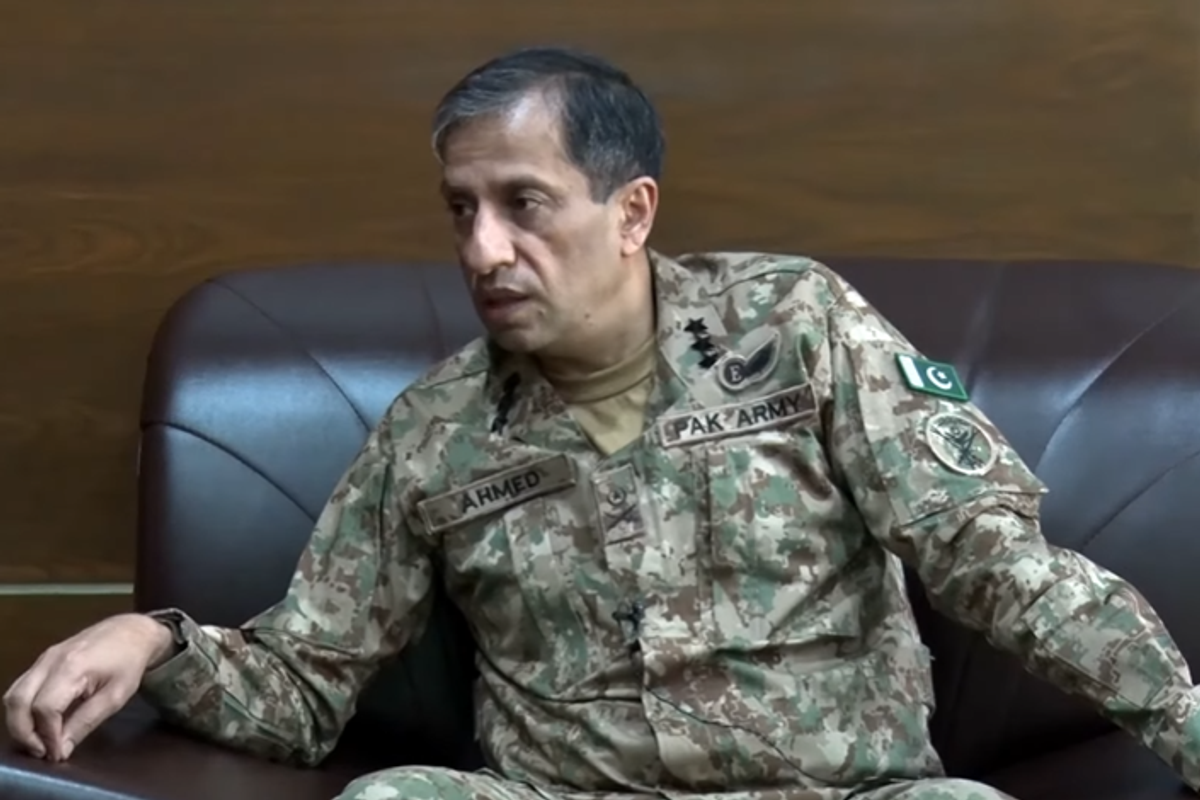News Desk
The News Desk provides timely and factual coverage of national and international events, with an emphasis on accuracy and clarity.

Inter-Services Public Relations (ISPR) Director General Lt Gen Ahmed Sharif Chaudhry in an interview with Sky News.
Sky News/YouTube
While border clashes and aerial hostilities have quieted following a ceasefire agreement, Pakistan’s military has issued a clear warning that any future violation by India will be met with a "swift and assured response".
The statement from Inter-Services Public Relations (ISPR) Director General Lt Gen Ahmed Sharif Chaudhry comes as both countries continue to observe a fragile truce, though sporadic cross-border firing was reported just hours after the ceasefire took effect.
Speaking to Sky News, the military spokesperson said: "Anyone who tries to violate our territory and integrity and sovereignty, our response will be brutal."
- YouTubewww.youtube.com
He cautioned that any escalation between the nuclear-armed neighbors could have catastrophic consequences for both.
"If India thinks that it can carve out a space for war between India and Pakistan, it is actually a recipe for carving out mutual destruction," he added.
He also said the international community now better understands the risks such conflict poses. "Any sane player like the USA understands this absurdity and what the Indians are trying to do here," he said.
The ISPR director general further accused India of seeking to "internalize" the Kashmir issue and of "harassing" the local population through increased military presence.
"It is a problem that has to be resolved by the people of Kashmir as per the United Nations Security Council resolution," he stated.
Pakistan’s Foreign Minister Ishaq Dar also said on Thursday that the country’s military had agreed to extend the ceasefire until Sunday, following a call between the military leaderships of the two countries.
How it all started
Tensions reignited after an April 22 attack in Indian-administered Kashmir killed 26 tourists. India blamed Pakistan-based militants for the assault and launched a series of air and missile strikes across the Line of Control, including in areas of Pakistan-administered Kashmir. Islamabad denied any involvement.
By May 7, both sides had exchanged heavy fire and drone attacks, prompting fears of a wider conflict.
The fighting came to an abrupt halt on May 10, when both countries agreed to a “full and immediate ceasefire” brokered by U.S. President Donald Trump.
U.S. Secretary of State Marco Rubio later revealed that the ceasefire followed intense diplomatic efforts. He and Vice President JD Vance reportedly held nonstop discussions over a 48-hour period with senior military and intelligence officials from both sides.
On Sunday, Rubio announced that India and Pakistan had also agreed to initiate talks at a neutral venue on a "broad set of issues."
Pakistan had also dismissed Indian Prime Minister Narendra Modi’s claim that Islamabad had sought the ceasefire from a position of weakness. Islamabad attributed the move to “facilitation by several friendly countries” that had urged both sides to de-escalate.










Comments
See what people are discussing